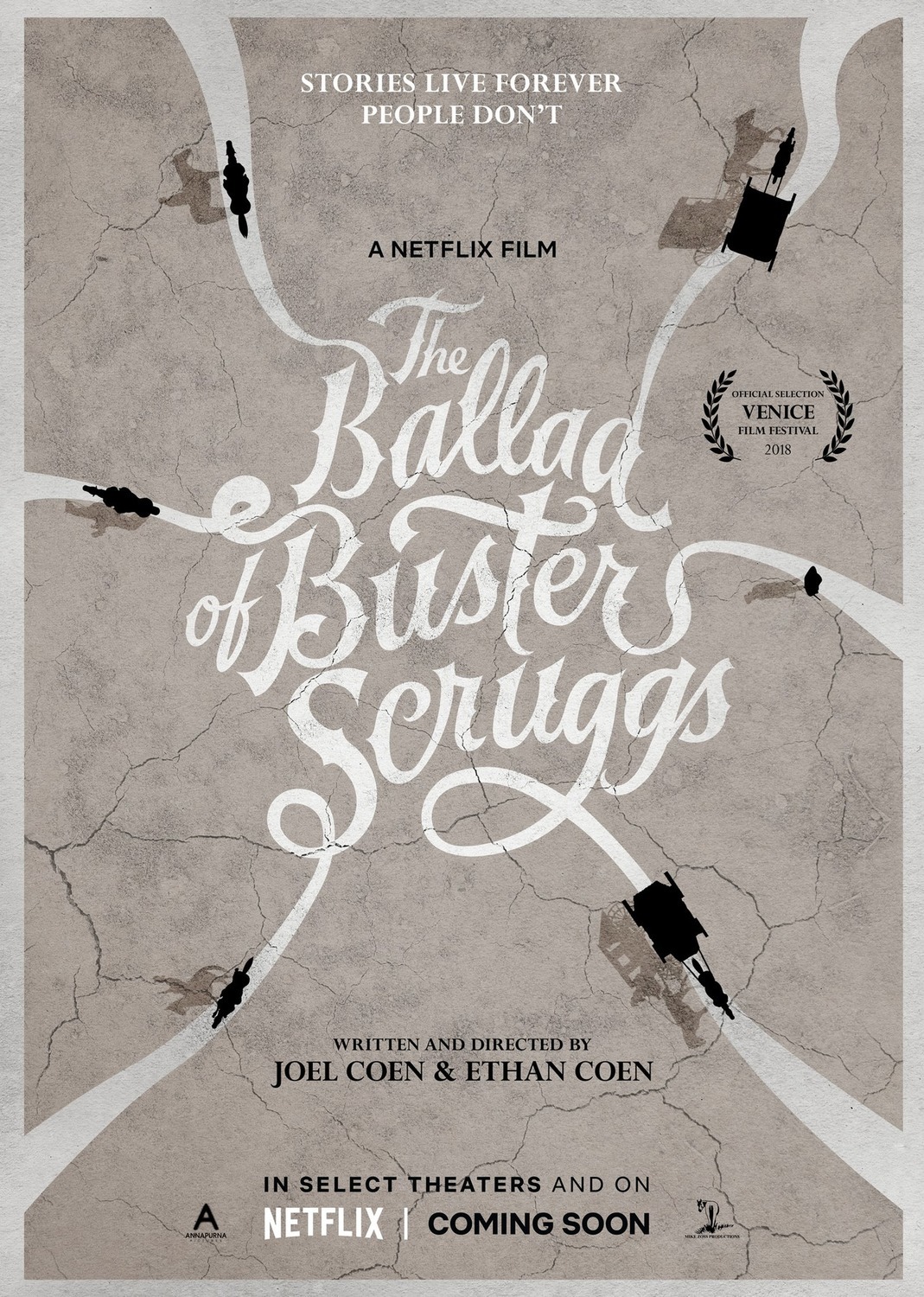Film Review: The Ballad of Buster Scruggs (2018)



I’ll put it to you like this: if you’re a Coen Brothers mark (I am), then there’s a hell of a lot to love about The Ballad of Buster Scruggs. If you’re not, well, then I hope you like it as much as I did – but you might not. Their brand of pitch-black comedy mixed with explorations of the darker side of life isn’t for everyone – and that’s fine. For someone like me, who loves a good old-fashioned western full of subtle and not-so-subtle subtext, Buster Scruggs seems tailor-made. The Coens know how to craft a story better than anyone in the business – dead or alive. This time around, they crafted six.

The film opens with the story of the titular Buster Scruggs (Tim Blake Nelson), a singing cowboy and gunfighter whose songs are a throwback to long gone days of Gene Autry and Roy Rogers. The Coens love referencing the bygone days Hollywood, and Buster is spot on (albeit with a violent twist). Generally, the opening act of a film serves to announce the mood and tone we’re in for. In a way, Buster and his gun set us up for what’s to come, but his playfulness betrays the harshness that blankets the rest of the movie. While I loved the Buster opening act, its difference in spirit from the rest of the film is my one and only gripe. After that, this is one hell of a picture. It’s a bleak and disturbing fable of the American West, and no one but the Coens could have pulled it off.

Written over the last twenty-five years, five more tales follow – each a textbook in the art of short film and storytelling. As per usual, the Coens run the gamut of comedy and tragedy, with a few stories being especially grim. Explosive fits of violence pepper these accounts of tragedy and loss in ways that no other working filmmakers can match. I’m not one who requires violence – of any sort – to enjoy a film, but Joel and Ethan have been doing it better than anyone dating all the way back to their debut in 1984 (Blood Simple). They have a way of surprising you with their unusual sense of brutality, making it nearly poetic.

Odes to John Ford, Sam Peckinpah, and Sergio Leonne are easy to spot, but the Coens are never derivative. Their eye for quirk and irreverence is too strong. Cinematographer Bruno Delbonnel paints some of the most beautiful landscapes since those great western directors but augments them brilliantly with shadow and color. Deeply rich and textured scenes are enhanced by Delbonnel’s palate. Snow and wind can be felt in the bones, and heat and sweat burn the eyes. The Coens have always had a knack for making their settings come alive. Buster Scruggs is no exception.

Anthologies can be tough. Inevitably, audiences will prefer one story over the other – and that’s okay. It will be interesting to see which stories emerge as favorites – and for whom. I can go on and on about the Coens and their work for days, but what you get out of these stories will largely depend on you and your individual sensibilities or comforts. These are, though, more than just stories – they’re fables of an era in American history when survival could mean equal parts ingenuity and barbarity. This is what’s left out of the tall tales of Pecos Bill, Paul Bunyan, and Johnny Appleseed. We’re given right and wrong, good and evil, and everything in between. The pure of heart are present, and so are the wicked – but strangely, almost everyone is sympathetic.
